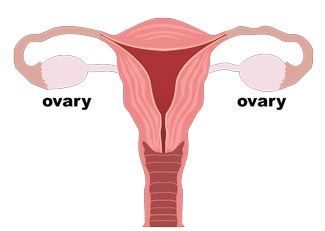Baby Powder Ovarian Cancer Risk

The link between women's use of talcum powder and ovarian cancer was first detected in a 1971 study that identified talc particles in a cancerous ovarian tissue sample. Since that first discovery, many major studies have specifically examined the connection between baby powder use and rates of ovarian cancer. As data has mounted, citizens and consumer advocacy groups have called for FDA warnings and governmental regulation of the substance.
Now, women around the nation are filing - and winning - lawsuits against the world's leading producer of talcum powder, Johnson & Johnson. According to documents presented by this firm in two winning court cases in 2016, J&J officials spearheaded a task force to conceal talcum powder cancer risk information from the public and safeguard company profits. J&J continues to deny the link between talcum powder and cancer, despite its major losses in court.
How Does Talcum Powder Cause Cancer?
Talc is a mineral found in natural deposits around the world. Comprised of magnesium, silicon, and oxygen, talc is widely used in a variety of industrial, cosmetic, and household products. While talc is generally considered safe for external uses, the substance has been found to be carcinogenic when inhaled or used on the genitals.
Talc is a key ingredients in several different body powders and body-freshening products, most notably Johnson's Baby Powder and Shower-to-Shower. Talcum powder is used to reduce moisture and prevent chafing, and combined with other substances in genital deodorizing sprays.
Researchers say talc particles exposes to the genitals may enter the female reproductive system and migrate to the ovaries. Because talc is insoluble with water, talc particles the reach the ovaries may remain intact for decades. Talc particles cause inflammation in the ovaries, increasing cell proliferation and leading to damage to DNA. These conditions create an environment which is friendly to the growth of cancer cells. An estimated 20% of American women routinely dusts her perineal with talcum powder.
Talcum powder cancer research shows that genital dusting with talcum powder increases a woman's risk threefold for developing ovarian cancer. Johnson & Johnson has been aware of this research, yet has never warned consumer of the ovarian cancer risk from using baby powder.
Baby Powder Ovarian Cancer Risk Research Findings
Studies linking talcum powder and ovarian cancer have been published in major medical journals such as Oncology, Anticancer Research, and Britain's The Lancet. Listed here are major findings in baby powder cancer research in recent years.
- 1992 Journal of Obstetrics and Gynecology: Weekly use of baby powder increases a woman's risk of developing ovarian cancer threefold.
- 1997 American Journal of Epidemiology: Genital talcum powder dusting and talc deodorant sprays increase the risk of ovarian cancer.
- 2003 Anticancer Research: Results of 16 previous studies on 12,000 women compiled to reveal that using talcum powder on the perineum increases a woman's risk for ovarian cancer by 33%.
- 2008 Cancer Epidemiology, Biomarkers, and Prevention: Dr. Margaret Gates, of Harvard, leads a study confirming weekly use of talcum powder increases cancer risk by 33%, and finding daily baby powder use increases the risk of ovarian cancer by 41%.
- 2010 Cancer Epidemiology, Biomarkers and Prevention: Another study led by Dr. Gates examines talc particles as risk factors for other types of cancer, reinforcing the idea that talc is carcinogenic or cancer-causing to humans.

Talcum Powder Attorneys Help Women and Families
This year, our attorneys have won the only two talcum powder cancer lawsuits in which a jury forced Johnson & Johnson to pay millions in damages. Our talcum powder attorneys are looked to as the national leaders in this particular form of product liability litigation. If you or a woman in your family was diagnosed with ovarian cancer and have a history of using talcum powder, you may have grounds to file a baby powder lawsuit against Johnson & Johnson.
Baby Powder Lawsuits
When a corporation is prioritizing profits over human lives, we are committed to achieving justice on behalf of American consumers. Our attorneys provide talcum powder lawsuit representation on a contingency basis, meaning we charge no legal fees unless we win compensation for you.



Austin, TX
Baltimore, MD
Birmingham, AL
Boston, MA
Buffalo, NY
Chicago, IL
Cincinnati, OH
Cleveland, OH
Columbus, OH
Dallas, TX
Denver, CO
Detroit, MI
Fresno, CA
Hartford, CT
Honolulu, HI
Houston, TX
Indianapolis, IN
Jacksonville, FL
Kansas City, MO
Las Vegas, NV
Los Angeles, CA
Louisville, KY
Memphis, TN
Miami, FL
Milwaukee, WI
Minneapolis, MN
Nashville, TN
New Orleans, LA
New York, NY
Oklahoma City, OK
Orlando, FL
Philadelphia, PA
Phoenix, AZ
Pittsburgh, PA
Portland, OR
Providence, RI
Richmond, VA
Riverside, CA
Rochester, NY
Sacramento, CA
Salt Lake City, UT
San Antonio, TX
San Diego, CA
San Francisco, CA
San Jose, CA
Seattle, WA
St. Louis, MO
Tampa, FL
Tucson, AZ
Tulsa, OK
Virginia Beach, VA
Washington, DC
Alaska
Arizona
Arkansas
California
Colorado
Connecticut
Deleware
Florida
Georgia
Hawaii
Idaho
Illinois
Indiana
Iowa
Kansas
Kentucky
Louisiana
Maine
Maryland
Massachusetts
Michigan
Minnesota
Mississippi
Missouri
Montana
Nebraska
Nevada
New Hampshire
New Jersey
New Mexico
New York
North Dakota
Ohio
Oklahoma
Oregon
Pennsylvania
Rhode Island
South Carolina
South Dakota
Tennessee
Texas
Utah
Vermont
Virginia
Washington
West Virginia
Wisconsin
Wyoming
